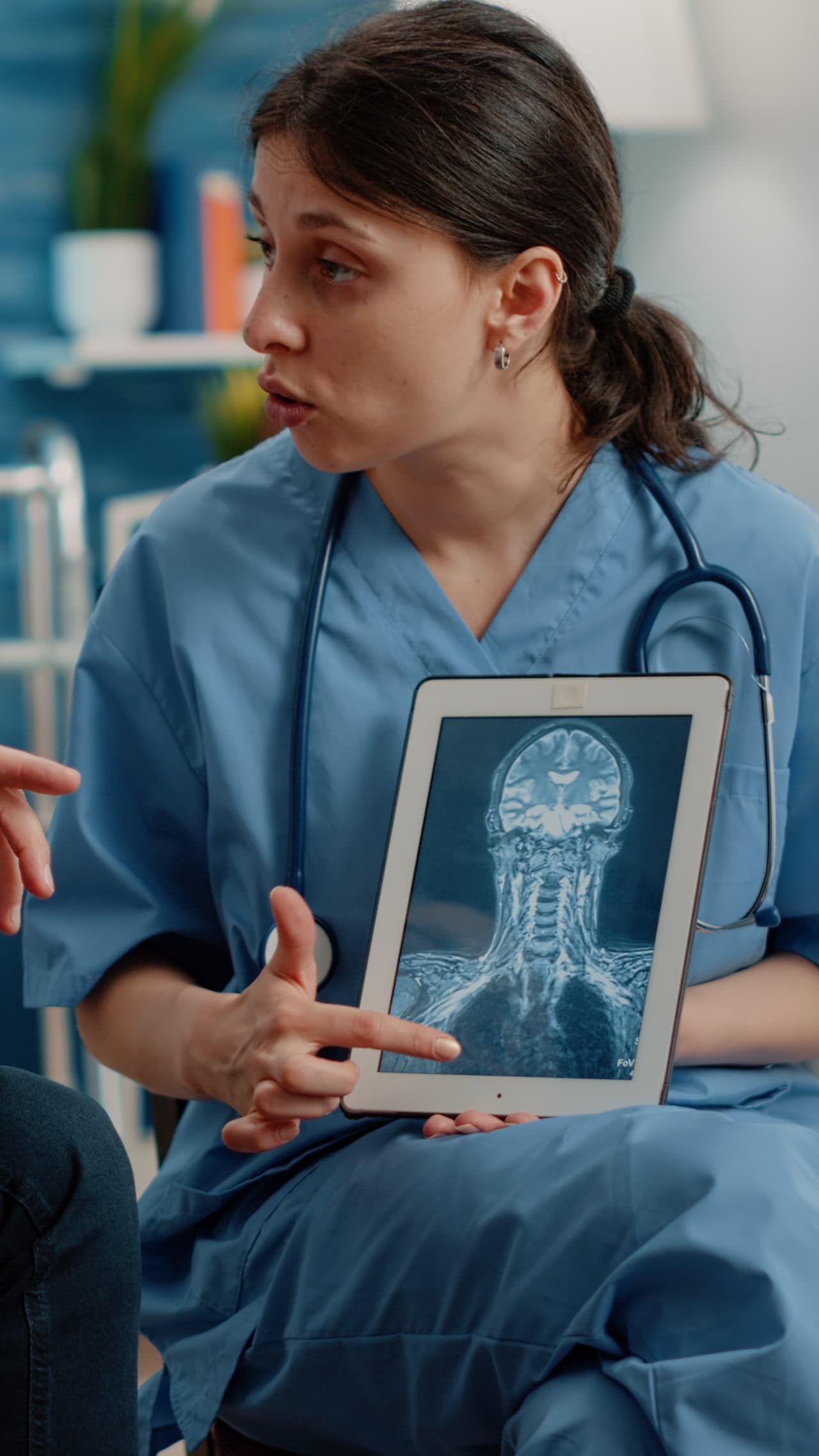Neurological Testing and Concussion Management After a Car Accident
Advanced Diagnostics and Brain Injury Care at Wesley Chapel Spine and Sports Medicine in Tampa, FL
CAR ACCIDENT DOCTOR TAMPA
Understanding the Hidden Impact of Car Accidents
Not all car accident injuries are immediately visible. Some of the most serious complications—such as concussions, nerve damage, or cognitive impairment—may not present obvious symptoms right away. Without proper neurological assessment, these conditions can be misdiagnosed, ignored, or incorrectly treated.
At Wesley Chapel Spine and Sports Medicine, our team of car accident doctors in Tampa provides in-depth neurological testing and concussion management for individuals suffering from auto-related trauma. If you’re experiencing dizziness, headaches, confusion, memory loss, or sensory changes after a crash, don’t wait. Early diagnosis and intervention are critical to protect your brain health and prevent long-term complications.
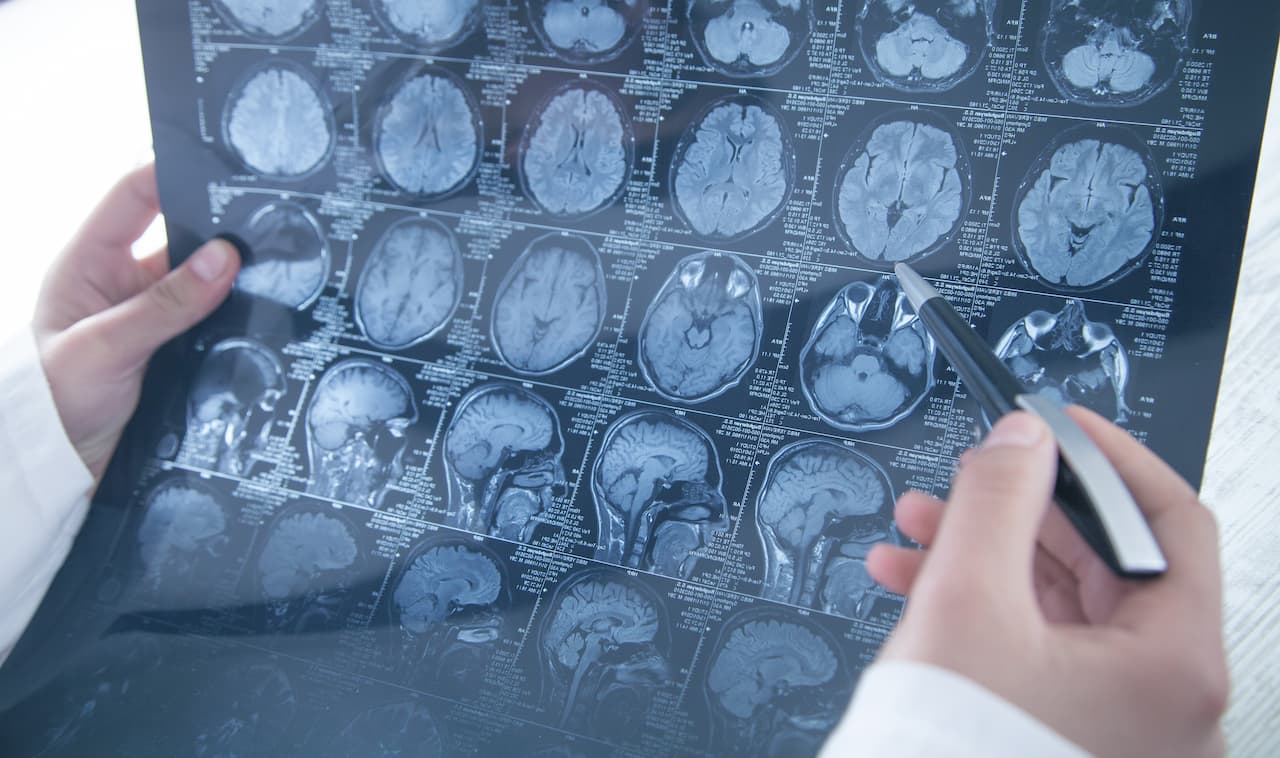
years of experiences
Common Neurological Symptoms
After a Car Accident
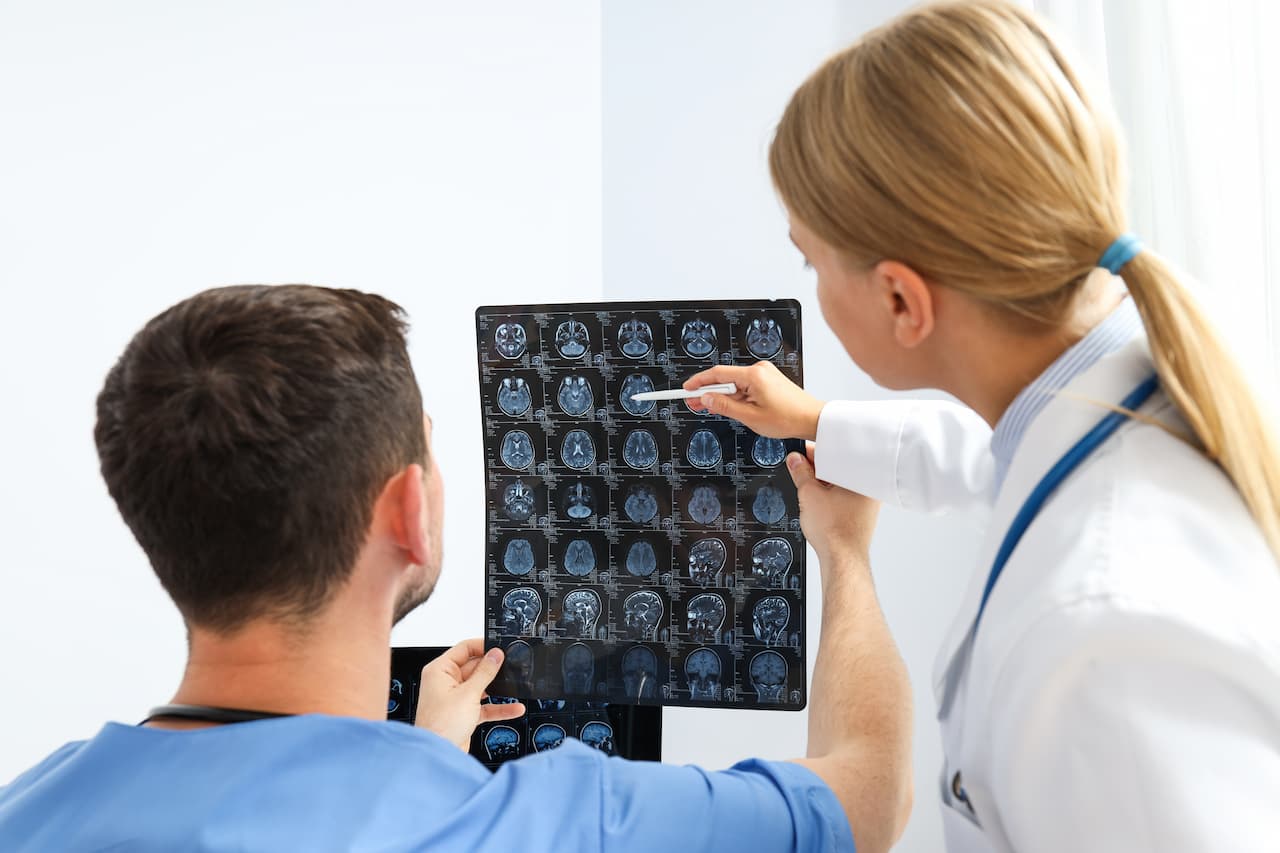
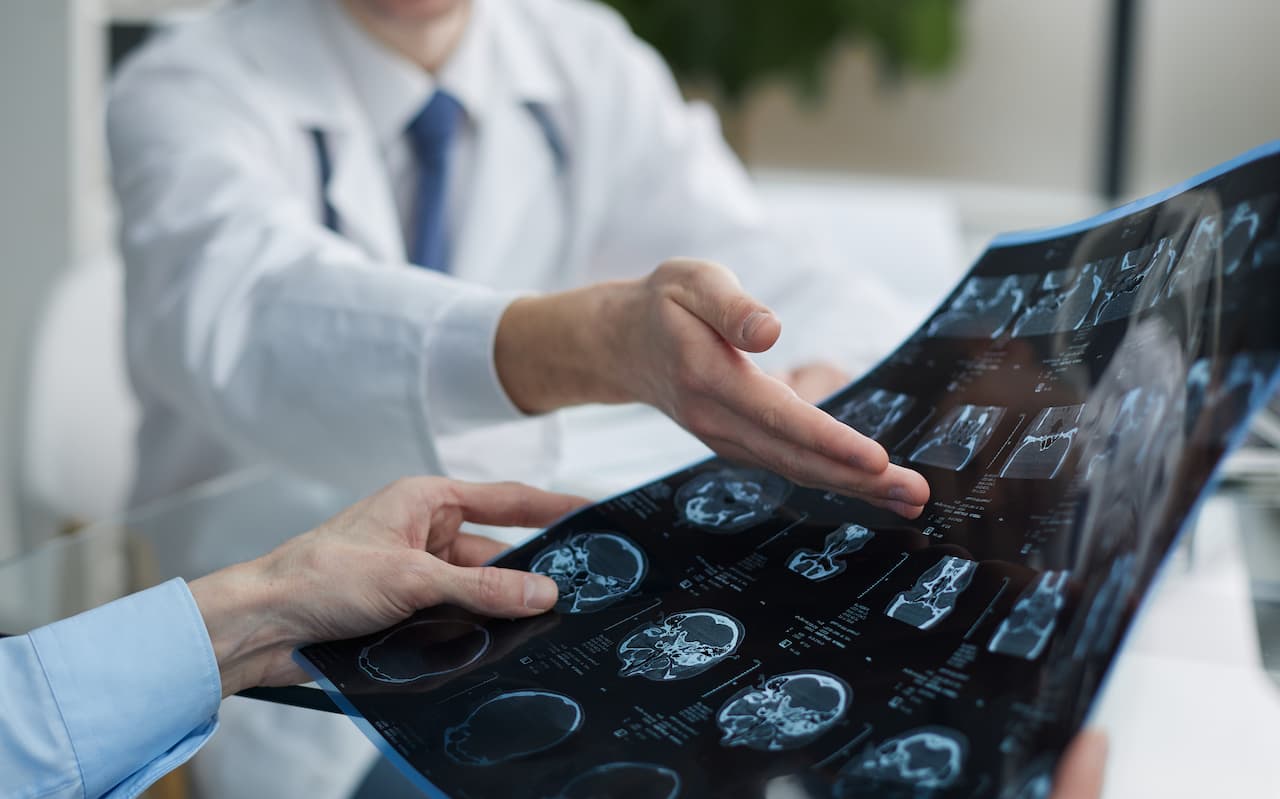
CAR ACCIDENT DOCTOR TAMPA
The Importance of Early Neurological Evaluation
When it comes to brain and nerve health, delayed treatment can mean permanent damage. The nervous system controls every function of the body — from muscle movement to sensory input, memory, and balance. A minor disruption can have major consequences.
Our center provides early neurological testing to:
Detect hidden concussions or head trauma
Identify central or peripheral nerve injuries
Rule out red flags for more serious brain or spinal conditions
Guide individualized treatment plans for physical and cognitive rehabilitation
Provide documentation for insurance or legal cases
How We Evaluate Neurological Function
We offer a comprehensive range of neurological and neurocognitive assessments, performed by medical providers trained in post-trauma diagnostics. Depending on your case, evaluations may include:
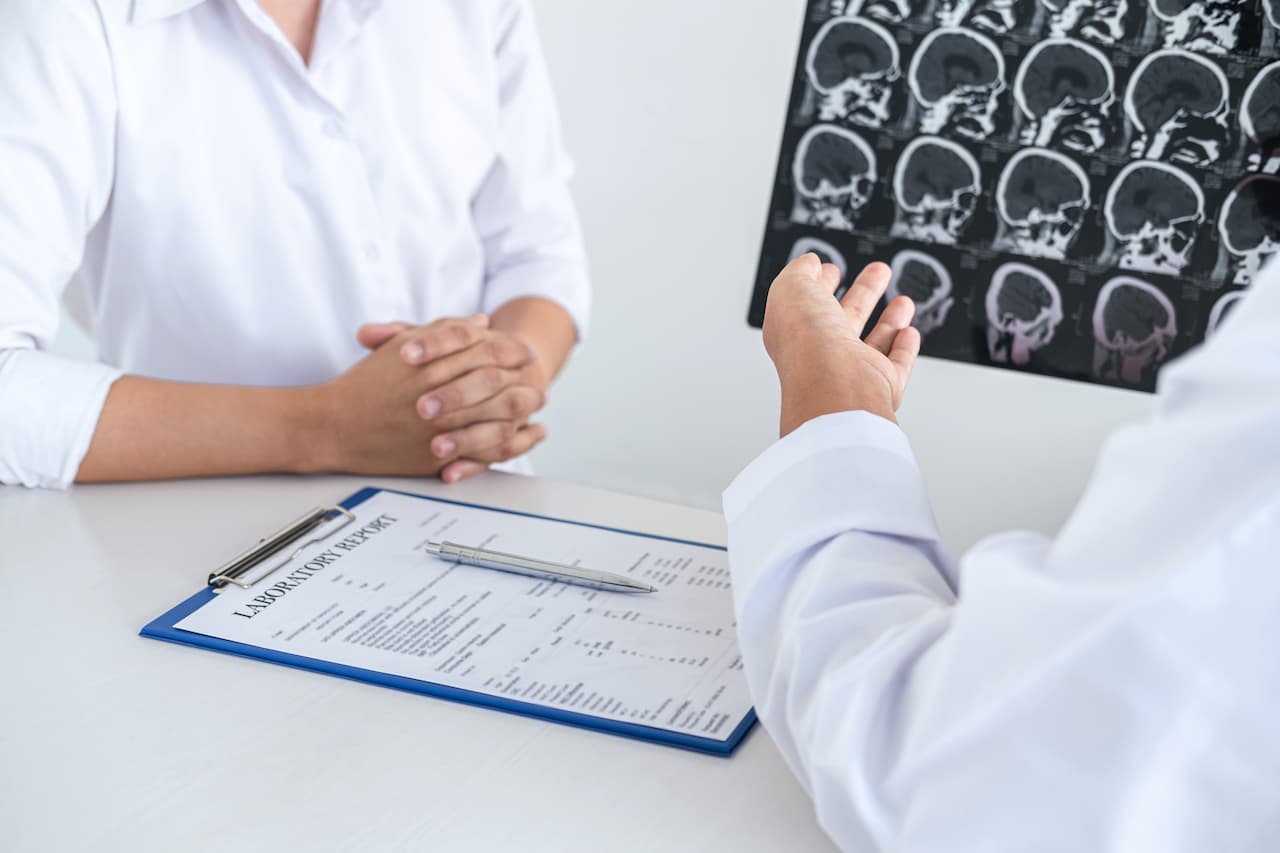
- Glasgow Coma Scale (GCS)
- SCAT-5 (Sport Concussion Assessment Tool)
- Balance Error Scoring System (BESS)
- Visual tracking and reaction time
- Light/sound sensitivity testing
Concussion Screening
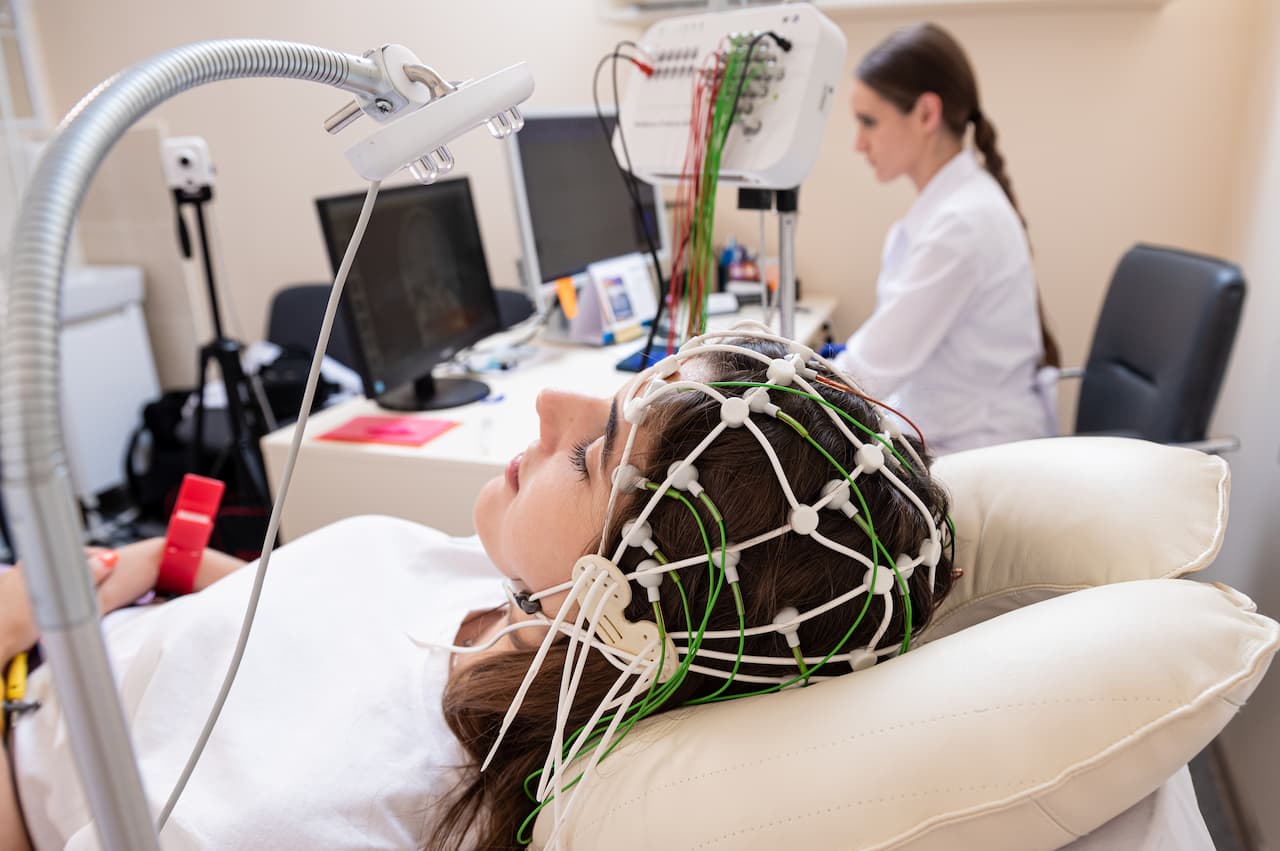
- Cranial nerve screening
- Reflex and sensation tests
- Muscle strength and tone assessments
- Balance, gait, and coordination checks
- Eye movement and pupillary response
Neurological Exam
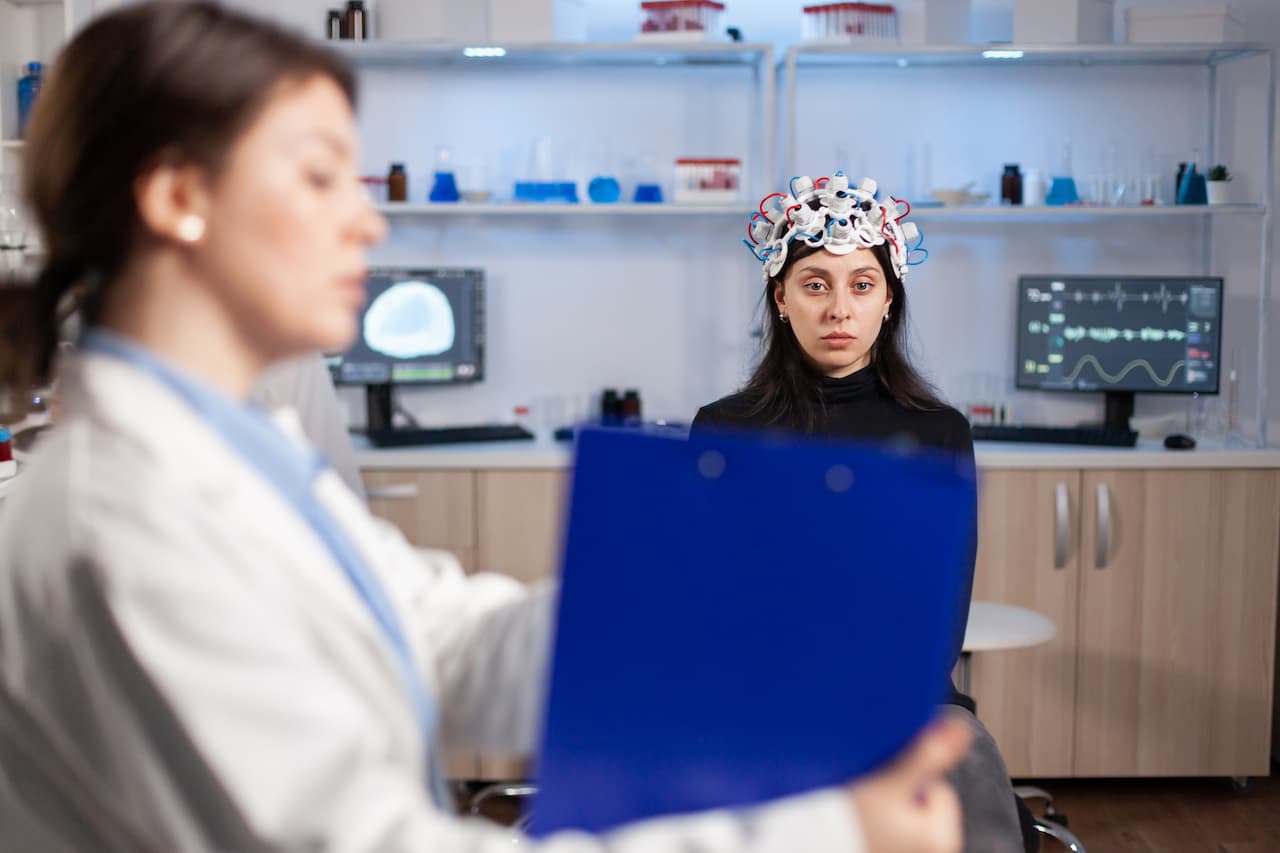
- Memory recall
- Problem-solving ability
- Attention and focus
- Verbal and nonverbal reasoning
- Orientation and awareness
Cognitive Testing
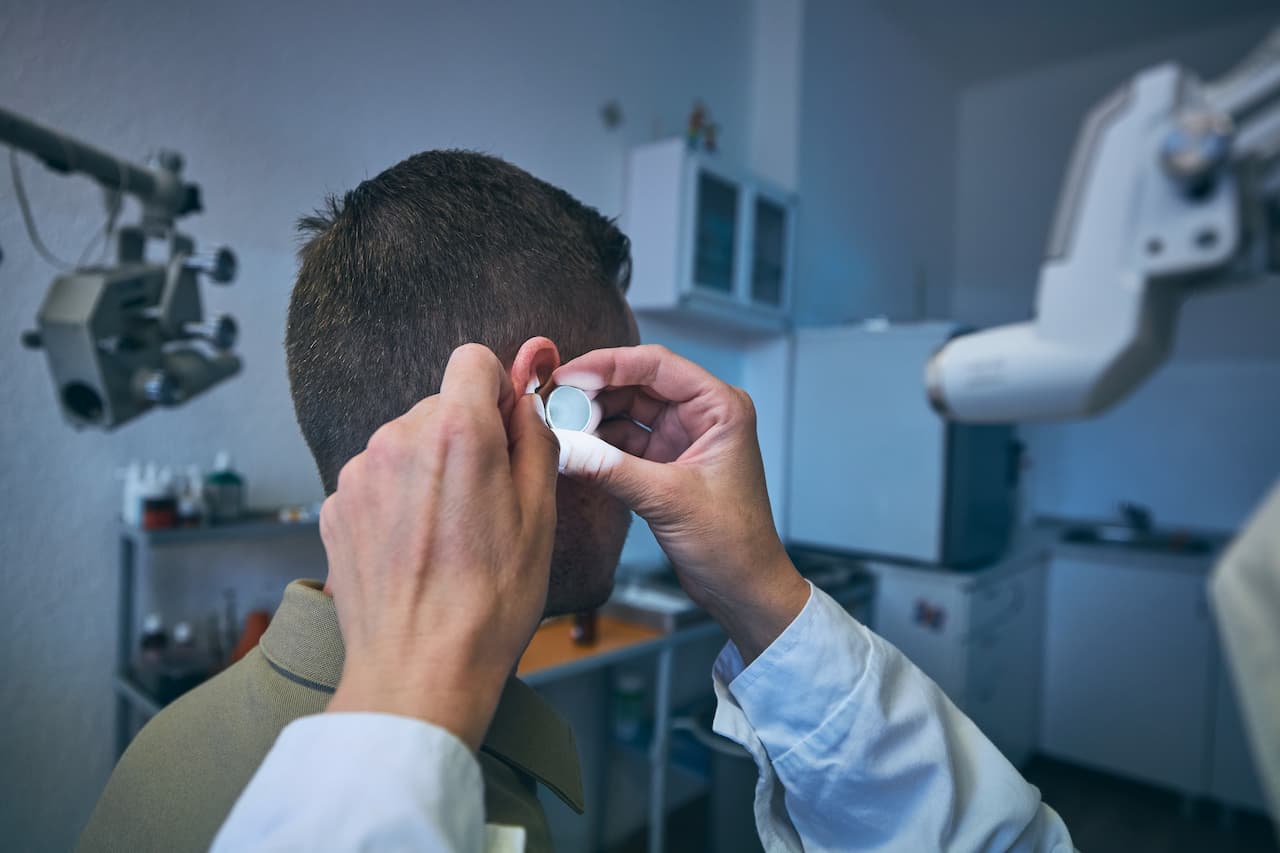
- VOMS (Vestibular/Ocular Motor Screening)
- Dix-Hallpike test (for vertigo)
- Smooth pursuit and saccadic eye movement tracking
Vestibular and Oculomotor Testing
If imaging is required, we offer diagnostic imaging referrals for MRI, CT, or X-rays to detect brain swelling,
hemorrhaging, or cervical spinal damage.
Our Approach to Concussion Management
A concussion is a form of mild traumatic brain injury (mTBI), and each one is unique. Our evidence-based, multi-phase management protocol allows us to treat you safely and effectively, without rushing your recovery.
Phase 1: Rest and Stabilization
- 24–72 hours of brain rest
- Avoidance of screen time, bright lights, strenuous activity
- Symptom monitoring and baseline tracking
Phase 2: Gradual Reintroduction of Activity
- Low-stimulus mental activity
- Light physical movement (e.g., walking, stretching)
- Sleep regulation and hydration focus
- Controlled return to work or school tasks
Phase 3: Cognitive and Physical Rehabilitation
- Visual tracking and vestibular retraining
- Balance therapy
- Cognitive therapy for memory and concentration
- Headache and migraine management
- Chiropractic adjustments or PT if needed
Phase 4: Return to Normal Function
- Full reintegration into daily life
- Reinforcement of cognitive performance
- Stress resilience and prevention education
When to Seek Immediate
Neurological Help
Call us or visit the ER if you experience:
Loss of consciousness (even briefly)
Ongoing vomiting or nausea
Worsening confusion or agitation
Slurred speech or difficulty forming words
Seizures
Unsteady gait
Sudden weakness or numbness
Neurological Issues Linked to Whiplash
A whiplash injury doesn’t only affect the muscles — it can cause:
Cervicogenic dizziness
Visual tracking problems
Autonomic dysfunction (heart rate, blood pressure)
Referred pain into arms, hands, or shoulders
We address these issues through a combination of neurology-informed chiropractic, physical therapy, and referral for imaging or neurology when necessary.
Insurance, Documentation and
Legal Reports
Every neurological assessment and treatment at Wesley Chapel Spine and Sports Medicine is:
Properly documented for insurance under Florida’s PIP (Personal Injury Protection)
Legally valid for use in personal injury cases
Coordinated with your attorney or case manager when applicable
Included in your complete medical narrative for long-term claims
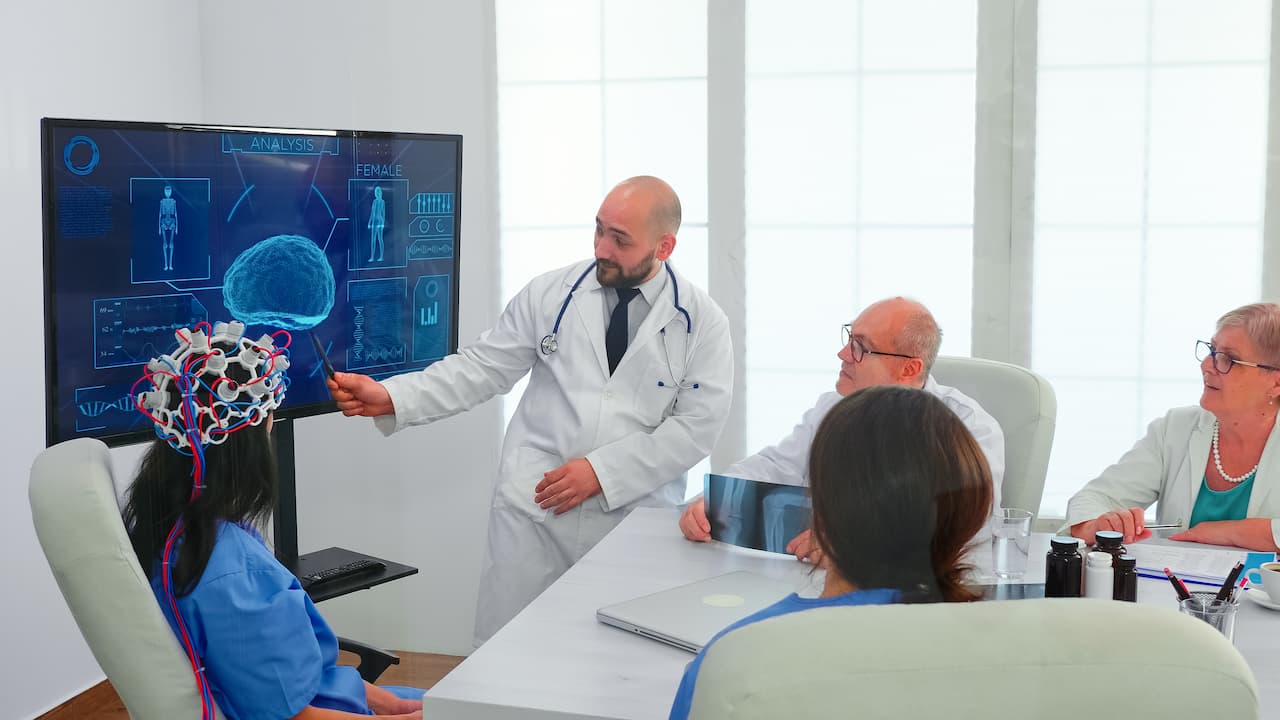
CAR ACCIDENT DOCTOR TAMPA
Why Choose Us for Brain and Nerve Recovery
Specialized car accident doctors in Tampa
Onsite concussion evaluations and balance testing
Collaborative care with chiropractic and rehab providers
Referral access to neurology or advanced imaging if needed
Strong legal and insurance documentation support
Compassionate, patient-centered approach
Frequently Ask Question
FAQs – Neurological Testing
After a Car Accident
How soon should I be tested after a head injury or whiplash?
Ideally within the first 48–72 hours. Symptoms may worsen without early intervention.
Do you work with attorneys and provide expert witness reports?
Yes. We provide medical records, progress notes, and testimony support when needed for injury cases.
What if I didn’t hit my head but still feel foggy or dizzy?
Concussions can occur from the force of sudden motion, not just impact. If your brain was shaken during the accident, you may still have a TBI.
Is dizziness always caused by the brain?
Not always. It can be related to cervical spine injury, inner ear disturbance, or vision issues — all of which we assess.
Will insurance cover my neurological care?
Yes, if related to a documented auto injury accident. Our office handles all billing and pre-verification.
Schedule a Neurological Evaluation Today
If you’ve been in a car accident and feel “off,” don’t ignore it. The effects of brain and nerve injuries are often silent but serious.
Address
Tampa, FL 33647
Phone
(813) CAR-RECK
Book Your Consultation Today!

